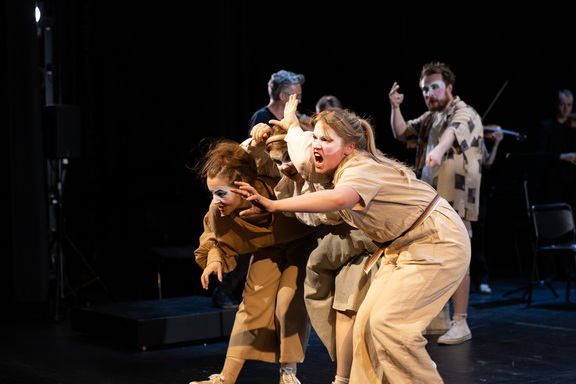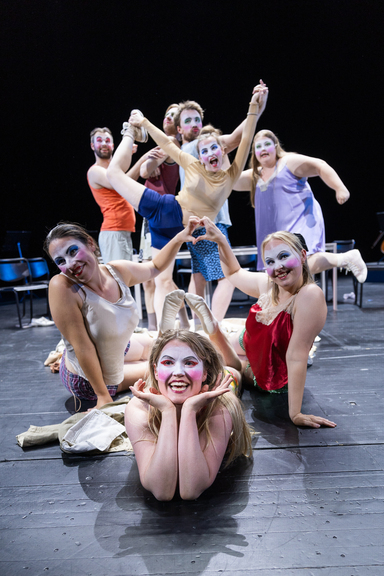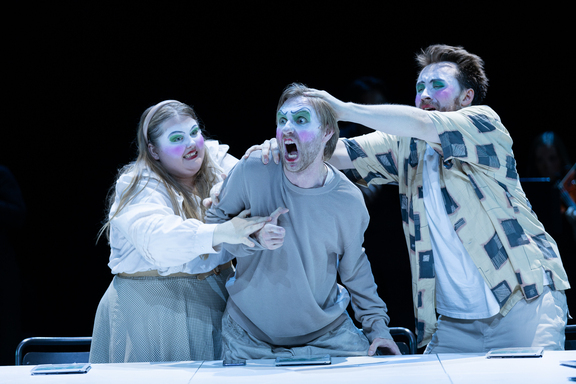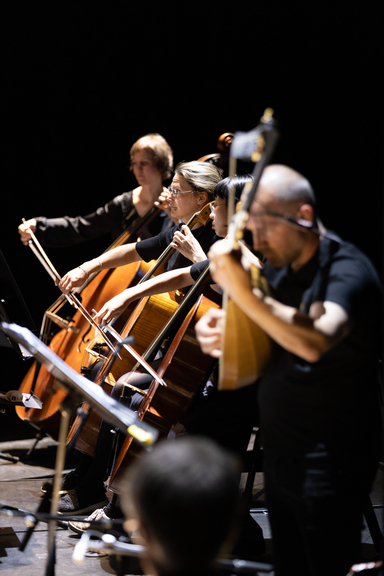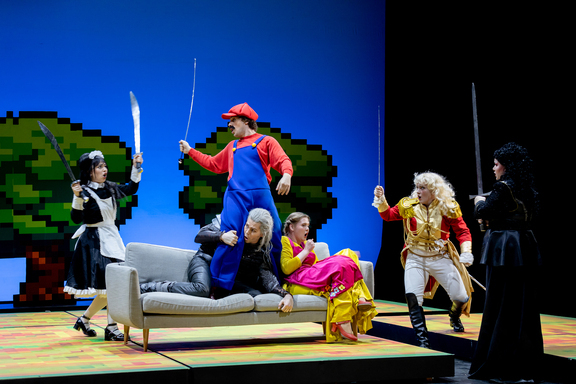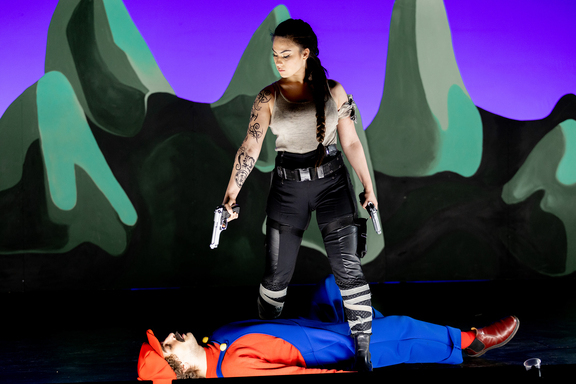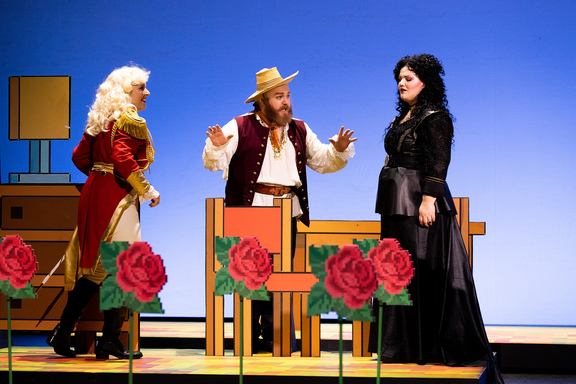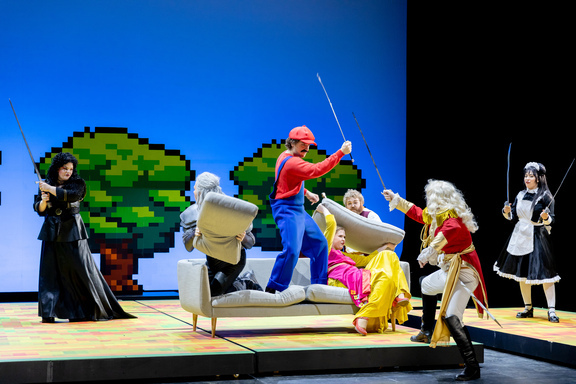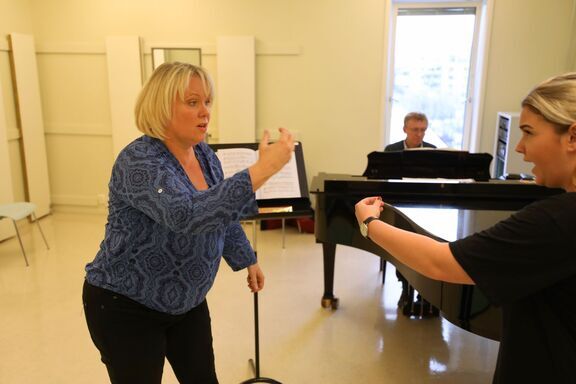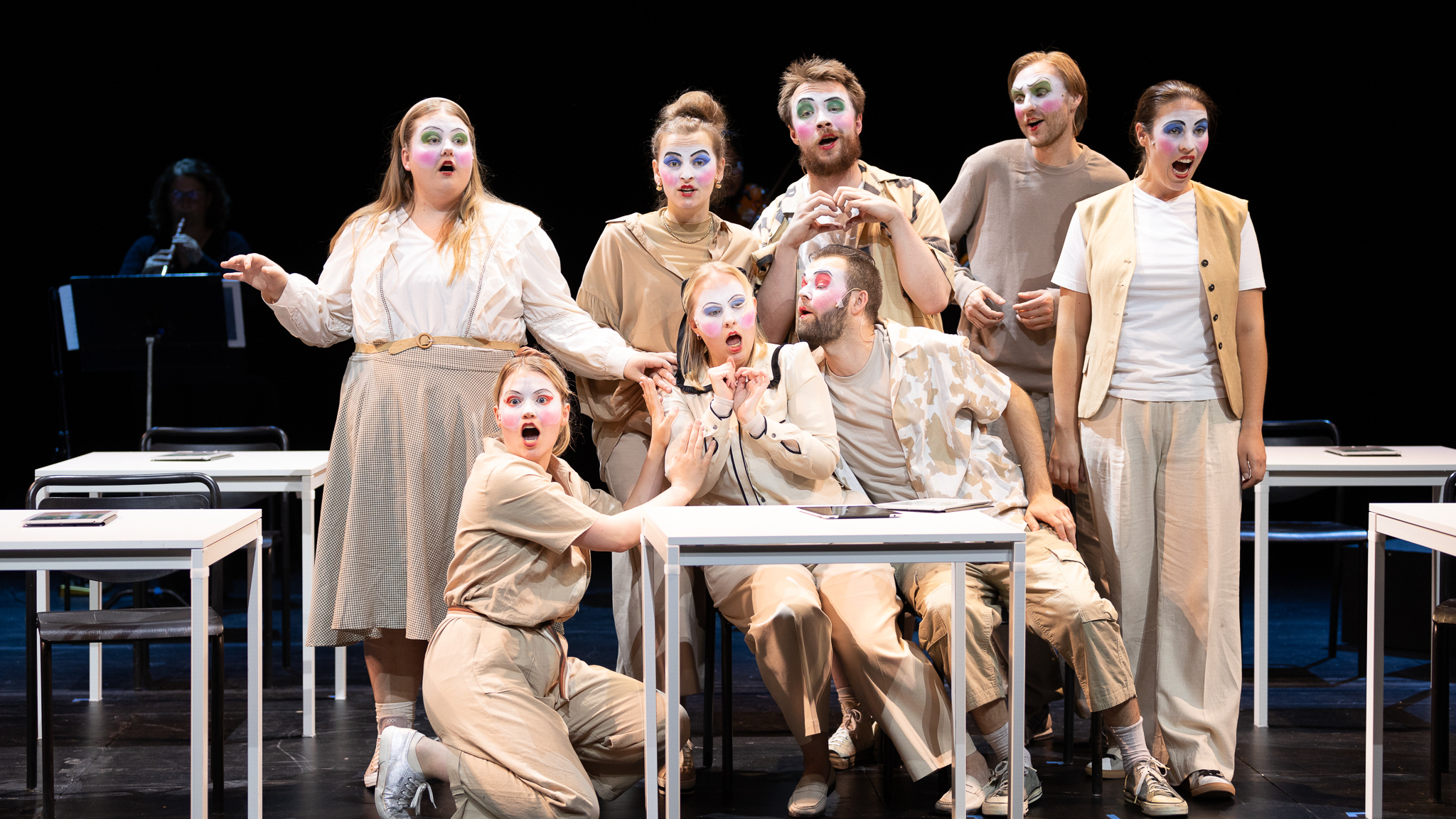

Master programme in Opera
The Master’s programme in opera educates opera singers at the highest artistic level. After completing your study, you will be able to professionally master and perform roles within a wide range of genres and styles.
Key elements of the programme include
- singing and musical rehearsal
- stage movement and acting technique
- physical and mental training
- a practical and theoretical Master’s assignment
The programme will allow you to develop your own personal musical and dramatic style. You will also develop good collaborative skills and an understanding of opera as a collective artform. All the subjects are integrated into stage productions, which are therefore entirely central to the programme. All classes are mandatory.
The Academy of Opera collaborates with the Norwegian National Opera and Ballet on annual productions with orchestra at the Norwegian National Opera House. During the programme you will also be given the chance to participate in master classes, audition training, auditions, study trips and entrepreneurship classes, all of which will help you make the transition to working professionally as an opera singer.
Programme description
This programme description is valid from the Autumn semester of 2022.
Brief programme description
Building on a Bachelor’s degree in opera or equivalent qualification, the Master of Opera programme is a twoyear full-time programme of higher education for opera singers. Upon completing their studies, students shall be able to perform as opera singers in temporary or permanent ensembles.
The theatrical aspect plays a key role in the education. The Master’s programme emphasises productions and on-stage performance. The integration of the musical and theatrical aspects, as underpinned by the relevant methodology, is important in order to achieve the competence that is needed to perform as an opera singer at a high level.
The Oslo National Academy of the Arts collaborates with the Norwegian Opera & Ballet and the Norwegian Academy of Music to train opera singers, for example through joint projects.
The programme provides 120 ECTS credits. Completing the degree qualifies students to apply for admission to the artistic research programme and to relevant PhD programmes.
Admission requirements
Admission takes place on the basis of formal education and admission tests. The programme requires the completion of a Bachelor-level education (180 ECTS credits). Such an education must include specialisation of at least 80 ECTS credits in music or other courses of relevance to the discipline of opera. Applicants must have at least 20 ECTS credits in stage-related or performative courses.
In exceptional cases, the Academy may approve other documented qualifications that are either completely or partially equivalent to the educations mentioned above.
Applicants are ranked according to the results of the admission tests. Students who are admitted to the programme must demonstrate an outstanding talent for the art of musical drama.
Applicants must document proficiency in English.
Learning outcomes
Upon completing the programme, students shall
- be able to perform opera art at a high level and with their own personal musical, vocal and theatrical expression
- be able to independently rehearse and analyse parts in a production
- master a wide range of methodological and stylistic expressions and be able to use these expressions at a professional level
- have solid insight into opera as an art form, including the various musical and theatrical styles
- be cognisant of vocal physiology and heath
- be able to initiate and participate actively in professional discourses on opera and help rethink and develop the discipline
- be able to initiate, plan and carry out their own artistic projects, and also establish and manage their own artistic enterprise
- show good collaborative skills and be a flexible, receptive and active contributor in work processes/ensemble work
Structure and progression
All the courses in the curriculum support and develop the professional skills the students need in their professional careers and that are described above in Learning Outcomes.
The stage productions are an overarching course that draws on the skills from the other areas. Opera is a complex art form, and it is natural that the courses will overlap one another. As a result, the content of the course curricula is partially learned during, and integrated into, the production work.
ECTS credits are used to describe the scope of the studies/ work required to take the various courses. 60 ECTS credits correspond to a year of full-time study. One ECTS credit corresponds to 25 to 30 hours of work by the student. The actual hours of work include educator-led teaching, lectures, written assignments, seminars, independent work and exam work. Some courses may rely heavily on educator-led teaching, while other courses mainly emphasise the student’s independent work.
Exchange
Students at the Oslo National Academy of the Arts have the opportunity to participate in an exchange programme at another institution of higher education during their studies. At the Master of Opera programme, the exchange period must accommodate the stage production plans and be agreed upon with the supervisor and approved by the dean.
Updated information on the Academy’s exchange programme agreements is available at www.khio.no.
These exchange agreements are valid for master programme in opera:
Teaching and learning methods
The opera education is based on knowledge from artistic practice, research and experience and is taught through a mix of educator-led teaching, supervision and independent work.
The instruction takes place in groups and individually. The programme requires that students take responsibility for, and reflect on, their own learning. At the same time, emphasis is placed on the individual student’s responsibility for the group’s progression and for understanding opera as a collective art form. Projects, demonstrations and performances are instrumental to the programme. At least once during the programme, students are given the opportunity to work with an orchestra. Students normally go on an annual field trip abroad.
Many of the courses are process-oriented and are predicated on student attendance, so that all instruction is mandatory.
The programme’s general coursework requirements are
- mandatory attendance, minimum 80%
- active participation in the instruction
- ongoing completion of the mandatory assignments
Further information on coursework requirements are stated in the individual course descriptions.
Upon the dean’s approval, students are allowed to undertake extracurricular obligations in fields concerning their studies.
The program is adapted for students who only master English so that all courses and all academic choices can be completed without the student mastering Norwegian.
Students are themselves responsible for both familiarising themselves with and following the provisions and rules that apply to the programme. Provisions on absence and leave have been laid down in the regulations concerning studies at the Oslo National Academy of the Arts (Forskrift om studiene ved Kunsthøgskolen i Oslo).
Assessment
The coursework requirements must be approved in order for students to receive their final course assessment.
Supervision and assessment represent a continuous process related to the programme’s goals and content. The programme’s ongoing assessment is based on teacher assessments and the students’ active participation in the instruction, their reflection on their own development and the completion of the coursework requirements in each course.
In addition to the ongoing assessment, a course may conclude with a written exam, an assessment of the artistic result of a showing or a practical demonstration related to the course’s learning outcomes.
The assessment takes place in a dialogue between the student, the teacher and the dean. The Master’s project is assessed by at least three examiners, of whom at least one is external.
See the individual course descriptions for further information on the assessment forms.
All the courses must be passed for a student to be allowed to take the final exam. All the courses in the programme must be passed for the student to achieve the degree of Master of Opera.
The programme uses a pass/fail grading system.
Further provisions on assessment and exams have been laid down in the regulations concerning studies at the Oslo National Academy of the Arts.
Quality assurance
The Oslo National Academy of the Arts has systems for assuring and enhancing the quality of all parts of the education. Students are important contributors to this work, for example by participating in student evaluations and the annual learning environment survey.
Course structure
| Course code | Course name | ECTS Credits |
|---|---|---|
| OP502 | Coaching 1 | 10 |
| OP505 | Stage work and productions 1 | 15 |
| OP521 | Vocational training 1 | 10 |
| OP523 | Physical and mental training 1 | 10 |
| OP524 | Acting | 10 |
| OP526 | Language | 5 |
| Course code | Course name | ECTS Credits |
|---|---|---|
| OP541 | Vocational training 2 | 10 |
| OP542 | Coaching 2 | 5 |
| OP543 | Physical and mental training 2 | 5 |
| OP545 | Stage work and productions 2 | 5 |
| OP550 | Independent master project | 35 |
Admissions
The application deadline was 01 February 2026. New application deadlines are announced early in the Autumn Semester.
About the Academy of Opera
Ever since its foundation in 1964, the Academy of Opera has served as Norway’s leading institution for opera education. We offer both a one-year programme and a Master’s programme in opera.
Featuring world-class educators and stage facilities, the Academy combines individual, group and project-based training. Stage productions and concerts represent important milestones under way in the programme. At the Academy, students are allowed to work with professional directors and conductors and a full team of stagehands. This provides students with a versatile, practical education and a solid foundation for becoming professional opera singers both in Norway and abroad.
